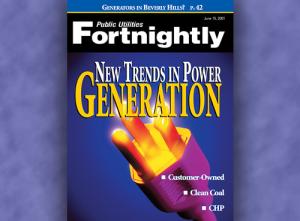The California Crisis: Another Take
Susan B. Kaplan is assistant director of the Harvard Electricity Policy Group at Harvard University’s Kennedy School of Government.
Among the many components of California's electricity shortage are the air quality laws that restrict allowable levels of emissions. And though we want to relieve that shortage and reduce air pollution as much as possible, the problem is one of proportionality. In California, electric utilities are responsible for reductions in air pollution way beyond their share of emissions. By further reducing emissions from more-polluting sources, we would reduce the burden on utilities and free up more electricity.

Until recently, electric utilities functioned as monopolies; state regulators set the rates and all reasonable compliance costs for emissions control were passed through to ratepayers. Since utilities were monopolies, holding ratepayers "captive" to regulated rates, the cost of cleaning up pollution, as with other costs, stayed hidden. It was politically easier to dump these costs onto utilities than onto other industries, like oil, gas, and auto manufacturing, which fought regulation.

